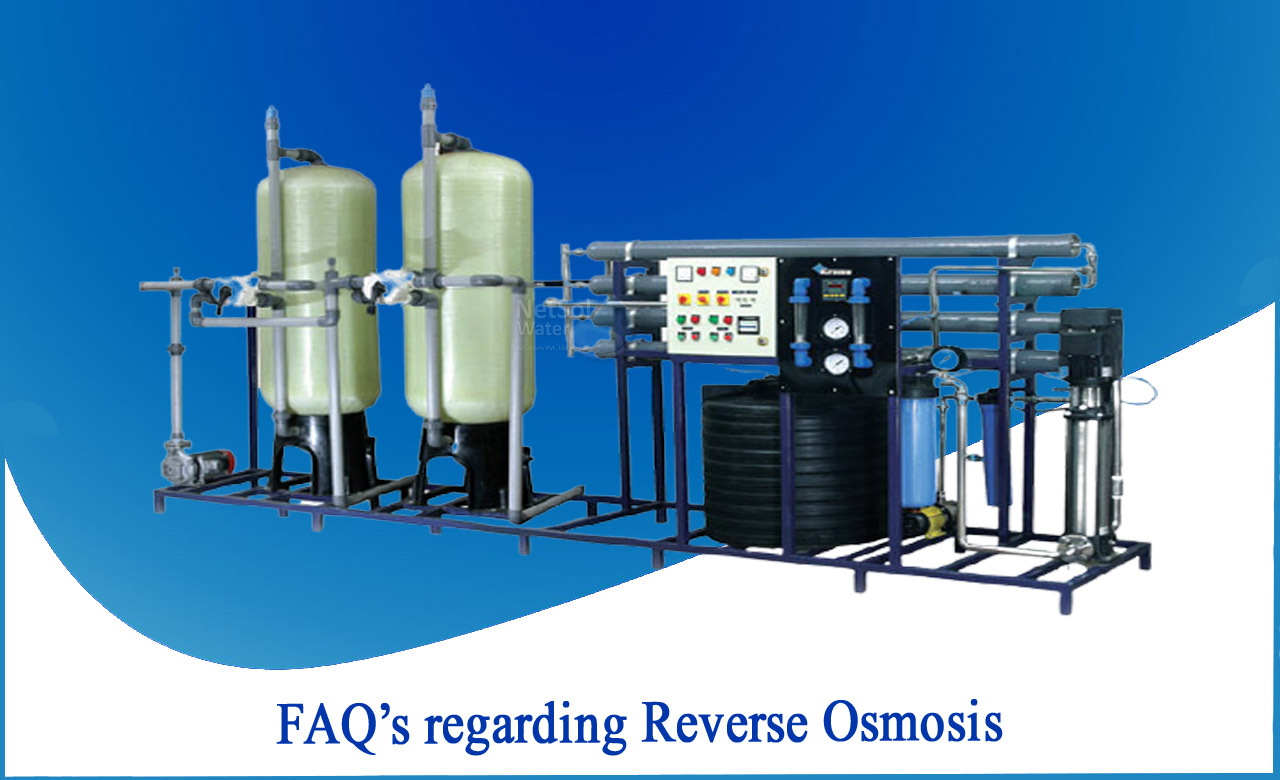Let’s have a look on the reverse osmosis FAQ’s. It gives answers to all the questions that arise into one’s mind before buying reverse osmosis system:
Most frequently asked questions-
1. What qualities make the water drinkable?
BIS- Bureau of Indian standard has defined the desirable quality of water which has TDS content 500 ppm (parts per million) or less. At some places water of this TDS is not available, 2000 ppm is the compromise/ permissible limit.
It is to be understood in mind that at some places, mostly in iron rich zones, iron salts may be present, and if its content rises more than 0.3 ppm, even if the total salt is less than the wanted level, iron salts must be removed before consumption of that water. This type of water also damages clothes while washing. In some areas of Uttar Pradesh and West Bengal, where water contains arsenic, which is poisonous, here the same rule applies. Fluoride rich water present in some areas which leads to bone diseases in populace, mostly in children. Fluoride rich water badly affects the teeth of the populace also. Although mineral rich water can be used for non-potable purpose.
On the other hand, if water has very low salt content, it becomes non palatable, so where TDS is less than 500, it can be reduced to 10 or 20 by RO. In some cases, where salt content is higher than 2000 ppm, harvesting rainwater is good alternative to dilute the salts and bring it within potable limits progressively.
2. What is the process of Reverse Osmosis System?
Reverse Osmosis using a membrane, is such a process in which salt content is managed in drinking water by lowering it.The vessel has two parts separated by a membrane, pressure is applied on it.The result is pure water going across the membrane to next compartment and salts remaining in the first compartment.But this process is limited to the point of high concentration,beyond which the reverse osmosis process will stop and water with its salts will be rejected.
Due to this, this process yields only 70 parts of good water from 100 parts of feed water and the other 30 parts which contains all the salts present originally will be wasted.
3. RO reject water
The RO system is used for domestic/commercial/industrialpurposes. The rejected component could go as high as 45%. Therefore, this process is highly wastewater generating.This wastewater or permeate is generally directed into sewage lines or some other areas.
4. What points should be considered for RO?
RO should be used only when salt content of water used for drinking is much higher than advisable.Reduction of salt content by 20 ppm is counterproductive.In cases of bacterial infection in water, contamination should be eliminated before sending it for treatment.
Netsol Water is Greater Noida-based leading water & wastewater treatment plant manufacturer. We are industry's most demanding company based on client review and work quality. We are known as best commercial RO plant manufacturer, industrial RO plant manufacturer, sewage treatment plant manufacturer, and effluent treatment plant manufacturers. Apart from this 24x7 customer support is our USP. Call on +91-9650608473, or write us at enquiry@netsolwater.com for any support, inquiry or product-purchase related query.



